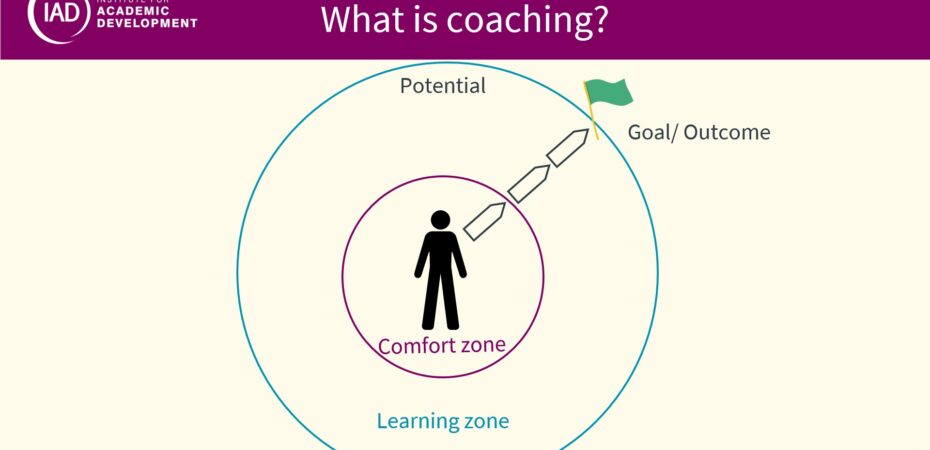At IAD we provide individual, person-centred development opportunities to support you in reaching your full potential: coaching, mentoring, and career development consultations. In this blog post we will describe each of these opportunities so that you choose the one that’s right for you or make appropriate referrals for colleagues and peers.
The IAD’s researcher development team have recently begun to offer limited coaching sessions to University of Edinburgh researchers (academic and research staff only) who would benefit from short-term personalised development through coaching. Coaching has numerous benefits to both individuals, teams and organisations, and we aspire to provide a more accessible internal coaching option to increase researchers’ ability to find solutions to complex issues. However, since the launch of the coaching offer in January 2025, there has been some confusion about what coaching is, what it does, and how it differs from other forms of 1:1 support. This is perhaps one of the most important things to highlight, as providing the right kind of support at the right time can make all the difference. Below are some key distinctions between the different kinds of 1:1 support we offer.
What’s the difference?
- Coaching – these are impartial and confidential conversations with a trained coach who will listen, ask incisive questions and offer feedback and observations to facilitate you to think deeply around your own development, to build your own awareness, and take responsibility to solve your own problems. Coaches will not give you advice or guidance on what you should do but will work with you to help you to progress toward a future goal. Coaching conversations tend to be goal-oriented and future focused. The coach does not need to have personal experience of your professional context, but it can be useful if they have some knowledge of the context within which you work (e.g. higher education or research).
- Career Development Consultations – these are impartial, confidential discussions with a qualified careers guidance practitioner. Consultations may be a mixture of information, advice, coaching, or guidance. Guidance consultations often explore the past, exploring how you’ve arrived at your current point in your career, facilitating self-awareness in relation to your career, discovering what might be learned from that journey, and supporting you to make progress in career planning. If you have a robust plan for your next steps, and need support with applications and interviews, this might entail more of a coaching process as you work with a careers consultant to improve your performance for recruitment and selection.
- Mentoring – is often a confidential conversation with a more experienced person who works in an area of interest to you who provides guidance and advice. It can also be peer-to-peer or group mentoring in some cases. Mentors can use coaching approaches, but the conversations are more likely to have an element of advice giving or guidance. The mentor will often be someone who has personal experience in a professional context like your own, or in an area you want to know more about.
Who is it for?
Within the IAD researcher development team, we support all researchers from postgraduate research students to Professors. Recognising that transitions into leadership roles bring both opportunities and challenges, our coaching appointments are only available to colleagues such as new Principal Investigators, group leaders, or supervisors. Career development consultations are for research and teaching staff on fixed term contracts only. Mentoring circles are open to research staff only, and academic staff or more experienced colleagues are invited to mentor small groups of research staff.
More information


